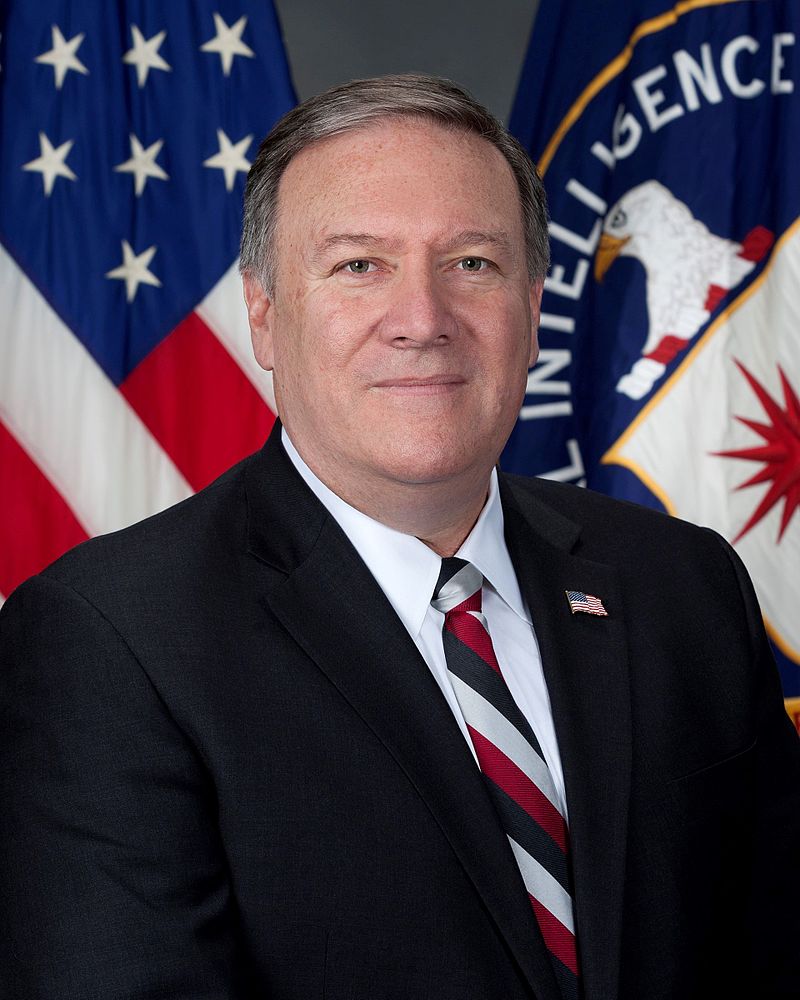
BRUSSELS — Newly minted U.S. Secretary of State Mike Pompeo hit the ground running on Friday at NATO headquarters on his first trip abroad as America’s top diplomat.
Just hours after being sworn in, Pompeo flew to Brussels where the alliance’s foreign ministers are meeting to prepare a leaders’ summit in July.
“I did come straight away, I was sworn in yesterday and I hopped on a plane,” Pompeo told NATO Secretary General Jens Stoltenberg as he arrived. “There’s good reason for that. The work that’s being done here today is invaluable and our objectives are important and this mission means a lot to the United States of America. The president very much wanted me to get here and I’m glad we were able to make it, and I look forward to a productive visit here today.”
Stoltenberg said Pompeo’s presence at the meeting so soon after taking the reins of the State Department was “a great expression of the importance of the alliance and the importance we attach to the alliance.”
“I very much look forward to talking with you, on the need to adapt NATO to a more demanding security environment,” he added.
A senior U.S. official says Pompeo’s aim is to ensure that NATO maintains a unified position of “no business as usual” with Russia and to prod members, particularly Germany, to meet their commitments to spend 2 per cent of their gross domestic product on defence by 2024. That commitment was made in 2014 and thus far only six of the 28 countries who made the pledge meet the goal. Nine have produced realistic plans for reaching it by 2024, but the rest, including Germany, have not.
That spending level, frequently incorrectly referred to by Trump as a contribution to NATO itself, is particularly important given the allies’ need to combat increased Russian aggression, said the official, who was not authorized to preview Pompeo’s meetings publicly and spoke on condition of anonymity.
The official said the U.S. delegation would make the point that NATO is more relevant today that at any point since the end of the Cold War. Russian efforts to destabilize Western democracies as well as encroach on neighbours like Ukraine will be a major theme of the meeting, the official said. The ministers will hold sessions on Russia, Afghanistan and NATO’s “open door policy” for accepting new members.
In addition, Pompeo will have separate talks with the foreign ministers of Italy and Turkey. Relations with the latter are notably strained. The senior official said one of Pompeo’s main goals with Turkish Foreign Minister Mevlut Cavusoglu is to refocus on co-ordination in northern Syria, where Turkey has been attacking Kurdish rebels supported by the U.S. That co-ordination was started by Pompeo’s predecessor, Rex Tillerson, who was fired by Trump last month, and had languished in the absence of a new secretary of state.
Pompeo will also renew calls for the release of a jailed American pastor accused by Turkey of espionage, and encourage Turkey not to pursue the purchase of an advanced air defence system from Russia.
From Brussels, Pompeo will travel on to the Middle East, visiting Saudi Arabia, Israel and Jordan, where the future of the Iran nuclear deal and the conflict in Syria will be significant agenda items, officials said.
Pompeo will arrive in Riyadh on Saturday ahead of a series of events that could potentially plunge the region into deeper disarray, including Trump’s decision by May 12 on whether to pull out of the Iran deal, and the opening of the new U.S. Embassy in Jerusalem two days later. The embassy move is deeply opposed by the Palestinians, who on May 15 will mark the anniversary of what they term the “nabka,” or catastrophe, when they fled or were driven from their homes during the 1948 Palestine war.
Looming over Pompeo’s trip is uncertainty over Trump’s policy on Syria, which has shifted between a speedy all-out withdrawal of American forces from the country and leaving a lasting footprint to deter Iran from completing a land bridge from Tehran to Beirut.